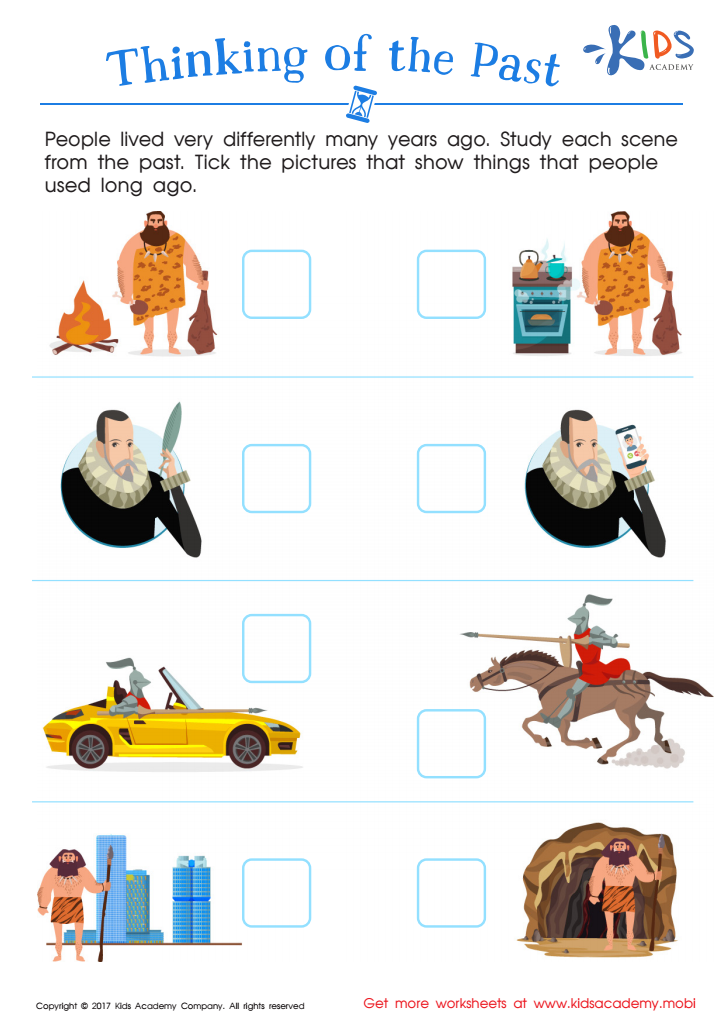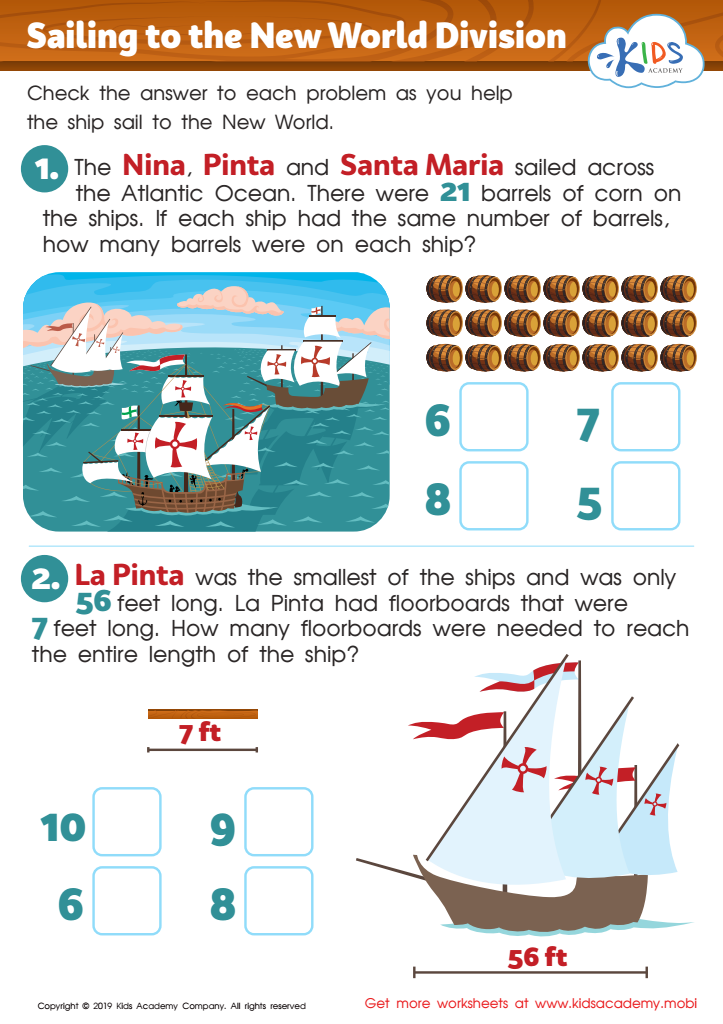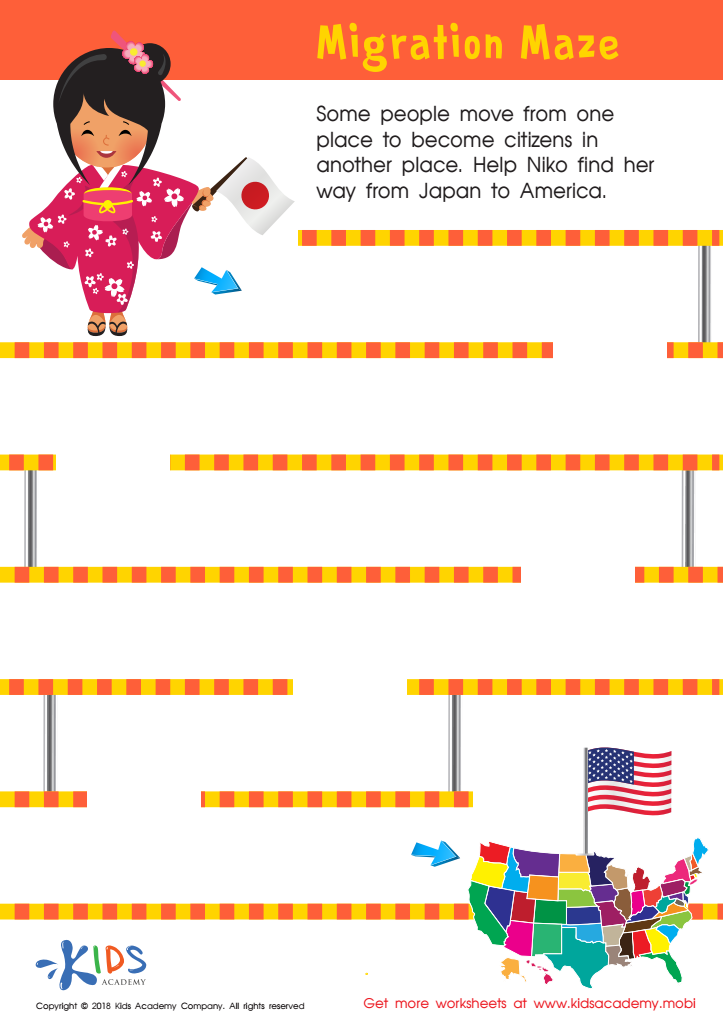Problem-Solving Skills Normal Social Studies Worksheets for Ages 4-5
5 filtered results
-
From - To
Discover a treasure trove of engaging Problem-Solving Skills worksheets designed for young learners aged 4-5! These carefully crafted social studies activities provide a fun and interactive way to develop critical thinking and decision-making abilities in preschoolers. Each worksheet encourages exploration, imagination, and logical reasoning, promoting active participation in learning. With vibrant visuals and relatable scenarios, children will enjoy solving problems while gaining essential skills for their academic journey. Perfect for homeschooling or classroom use, our Normal Social Studies Worksheets help foster curiosity, creativity, and social awareness in early childhood education. Empower your child's learning experience today!


Thinking Past Printable


Sailing to the New World Division Worksheet


Towns Worksheet


Migration Maze Worksheet
Parents and teachers should prioritize problem-solving skills in social studies for children aged 4-5 because these foundational skills are crucial for lifelong learning and development. At this age, children are naturally curious and eager to explore the world around them. Introducing problem-solving within the context of social studies encourages critical thinking and helps children understand their communities and relationships.
Engaging in problem-solving activities allows young learners to analyze situations, consider multiple viewpoints, and collaboratively find solutions. For instance, discussing scenarios such as sharing toys or working together to complete a project helps children develop empathy, negotiation skills, and effective communication. Additionally, these exercises promote self-regulation, enabling children to manage emotions as they work through challenges.
Moreover, early exposure to problem-solving within social studies fosters a sense of citizenship and responsibility. Children learn to appreciate diverse perspectives, which is essential for building an inclusive community. Ultimately, encouraging problem-solving skills in social studies equips young learners with the tools they need to navigate social interactions and contributes to their overall cognitive development, setting a strong foundation for future learning in both academic and personal realms.
 Assign to My Students
Assign to My Students





















